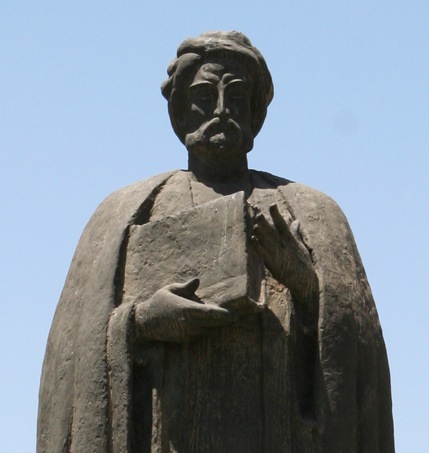The Caliphate Foundation
Carly Fiorina, former CEO of Hewlett Packard, said in a speech:
“There was once a civilization that was the greatest in the world.
It was able to create a continental super-state that stretched from ocean to ocean, and from northern climes to tropics and deserts. Within its dominion lived hundreds of millions of people, of different creeds and ethnic origins.
One of its languages became the universal language of much of the world, the bridge between the peoples of a hundred lands. Its armies were made up of people of many nationalities, and its military protection allowed a degree of peace and prosperity that had never been known. The reach of this civilization’s commerce extended from Latin America to China, and everywhere in between.
And this civilization was driven more than anything, by invention. Its architects designed buildings that defied gravity. Its mathematicians created the algebra and algorithms that would enable the building of computers, and the creation of encryption. Its doctors examined the human body, and found new cures for disease. Its astronomers looked into the heavens, named the stars, and paved the way for space travel and exploration.
Its writers created thousands of stories. Stories of courage, romance and magic. Its poets wrote of love, when others before them were too steeped in fear to think of such things.
When other nations were afraid of ideas, this civilization thrived on them, and kept them alive. When censors threatened to wipe out knowledge from past civilizations, this civilization kept the knowledge alive, and passed it on to others.
While modern Western civilization shares many of these traits, the civilization I’m talking about was the Islamic world from the year 800 to 1600, which included the Ottoman Empire and the courts of Baghdad, Damascus and Cairo, and enlightened rulers like Suleiman the Magnificent.
Although we are often unaware of our indebtedness to this other civilization, its gifts are very much a part of our heritage. The technology industry would not exist without the contributions of Arab mathematicians. Sufi poet-philosophers like Rumi challenged our notions of self and truth. Leaders like Suleiman contributed to our notions of tolerance and civic leadership.”
The full transcript can be viewed here.
About
The British historian Arnold Toynbee described the Muqaddimah, Ibn Khaldun’s prolegomena or introduction to his history of the world, as “undoubtedly the greatest work of its kind that has ever yet been created by any mind in any time or place”. And Mark Zuckerberg picked his great work as one of his … [click to continue]

Ibn Khaldun on the Defeated Mentality
“The vanquished always want to imitate the victor in his distinctive characteristics, his dress, his occupation, and all his other conditions and customs. The reason for this is that the soul always sees perfection in the person who is superior to it and to whom it is subservient. It considers him perfect, either because it is impressed by the respect it has for him, or because it erroneously assumes that its own subservience to him is not due to the nature of defeat but to the perfection of the victor.”
[Ibn Khaldun, Muqaddimah, quoted in S. Sayyid, Recalling the Caliphate: Decolonization and World Order, Hurst & Company, London, 2014, p. 1]
